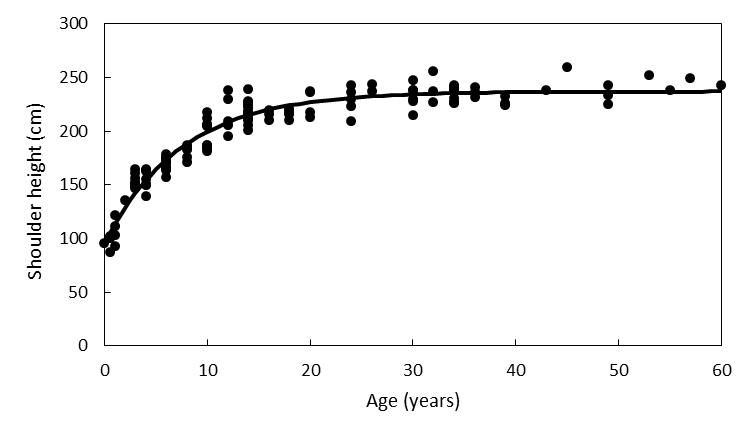Impact of severe drought on the age structure of a population of African savannah elephants
DOI:
https://doi.org/10.69649/pachyderm.v65i.1307Abstract
Hundreds of elephants died during a severe drought in Gonarezhou National Park (Gonarezhou) in south-east Zimbabwe during 1992. The following year, entire female herds comprising 670 female and juvenile elephants were captured and translocated elsewhere. Sex-specific von Bertalanffy growth functions for shoulder height against age for elephants culled in Gonarezhou a decade earlier allowed each of 667 elephants captured during 1993 to be aged based on shoulder height. The captured elephants provided a representative sample of the age and sex structure of the population one year after the drought. Immediately after the drought, the age structure was determined by deducting one year from each elephant’s age at capture and compared with that of elephant herds culled in Gonarezhou during 1972-1987. Adult females formed a high proportion (45%) of the individuals in female herds immediately after the 1992 drought, implying that there was high mortality of non-adults during the drought. There were relatively few surviving individuals in the 0-4-year age class, suggesting that mortality was greatest amongst the youngest individuals. When non-adults of all ages were considered, there were fewer males than females amongst the drought survivors, suggesting that the males experienced greater mortality than females. Significant mortality of weaned elephant calves during droughts is uncommon; and the high mortality of non-adults in Gonarezhou during 1992 highlights the particular severity of the drought.

Downloads
Published
How to Cite
Issue
Section
License
Copyright (c) 2024 Kevin M Dunham

This work is licensed under a Creative Commons Attribution-NonCommercial 4.0 International License.



